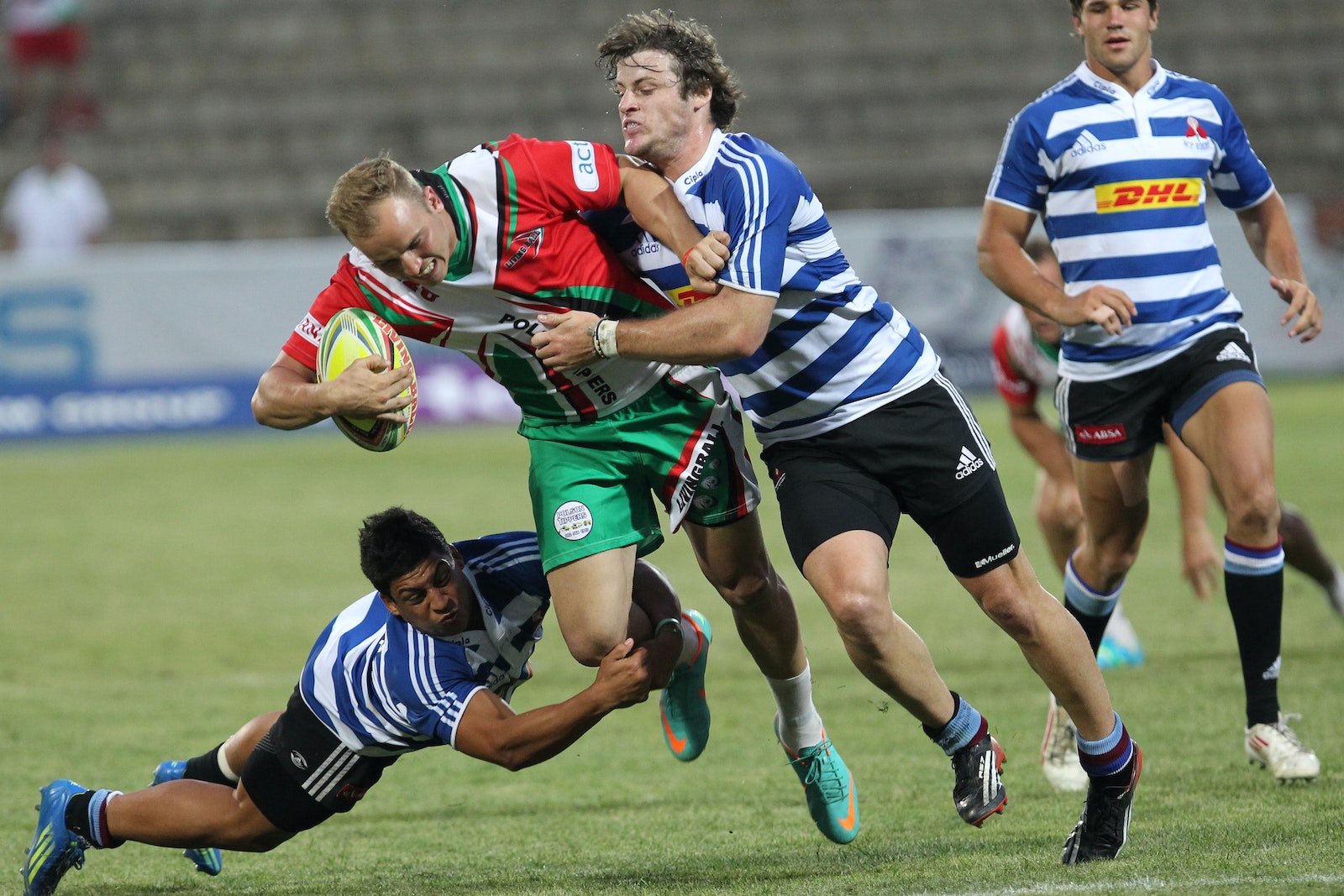Introduction
Rugby is a contact sport with two teams of 15 players each, engaging in intense physical encounters on the pitch. As with most contact sports, there are potential risks for serious injury due to tackles and collisions between players. Despite this, one thing that distinguishes rugby from other full-contact sports such as American football or ice hockey is that while they require protective helmet gear, rugby players do not typically wear helmets during matches. In this blog post, we’ll take a look at why that is and what safety measures are taken instead.
Why Rugby Players Don’t Wear Helmets
The primary reason why rugby players don’t often wear helmets is that it reduces their ability to move freely without impediment. While headgear can certainly provide protection against injury during tackles and scrums, it also restricts movement which could arguably be more dangerous than the risk of an occasional head injury since it limits agility on the field and can impair vision when competing for possession of the ball. Furthermore, many believe wearing helmets detracts from the spirit of the game; tackling low has been seen as an integral part of playing by some traditionalists who don’t want equipment to interfere with technique or style of play.
Safety Measures Instead Of Helmets
While helmets are not always worn in professional matches (which may have different protocols depending on the country), certain rules regarding player safety have been implemented over time in order to protect them from harm despite lacking headgear protection specifically. For example, referees will penalize any high tackle that starts above waist level, and shoulder charges must be fair – no pushing or shoving allowed! Additionally, there are stricter guidelines around competition standards which require all participating teams to adhere to basic health & safety regulations, including adequate rest periods before games, so fatigue does not lead to accidental injuries during playtime; this minimizes potential damage caused by collisions between tired bodies on both sides of the field too!
Conclusion
Rugby isn’t just another full-contact sport – its lack of helmet use sets it apart from others like American football or ice hockey, where protective gear is mandatory for everyone taking part in matches. That said, though, there’s still plenty being done when it comes down to player safety even if helmets aren’t involved; referees ensure fouls like high tackles and shoulder charges remain illegal while competition standards put restrictions in place around pre-game preparation, so fatigue doesn’t cause unnecessary accidents out on the pitch either! All these factors combined make sure opponents stay safe throughout gameplay regardless if they’re wearing specialized gear or not – making sure good old-fashioned skillful technique prevails every time someone steps onto those fields!

